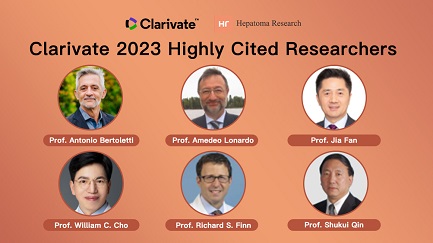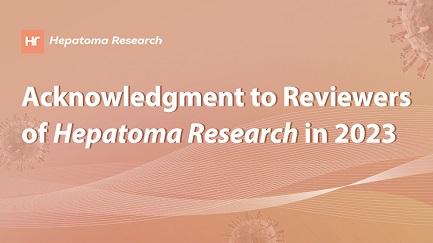An Online Panel Discussion on "Current Therapeutic Strategies in Nonalcoholic Fatty Liver Disease"
The online panel discussion on “Current treatment strategies for nonalcoholic fatty liver disease” was held successfully on December 17, 2022. It was such a great honor and pleasure for the Editorial Office of Hepatoma Research to have Prof. Matthew M. Yeh, (Professor of Laboratory Medicine and Pathology, Adjunct Professor of Medicine, and Director of Gastrointestinal and Hepatic Pathology Program, University of Washington, Seattle, WA, USA.) as the webinar Chair. The five Guest Speakers gave keynote speeches on their interest areas and had in-depth exchanges.
Ming-Lung Yu, Senior Vice President, Dean and Chair Professor, School of Medicine, College of Medicine, National Sun Yat-sen University, Kaohsiung, Taiwan, delivered an impressive speech on “Treating Concomitant Disease to Mitigate NASH”. Prof. Yu introduced that treating comorbidities could mitigate non-alcoholic steatohepatitis (NASH) and improve outcomes and revealed that the results from anti-diabetes drugs and/or lifestyle modifications play a significant role in NASH management.
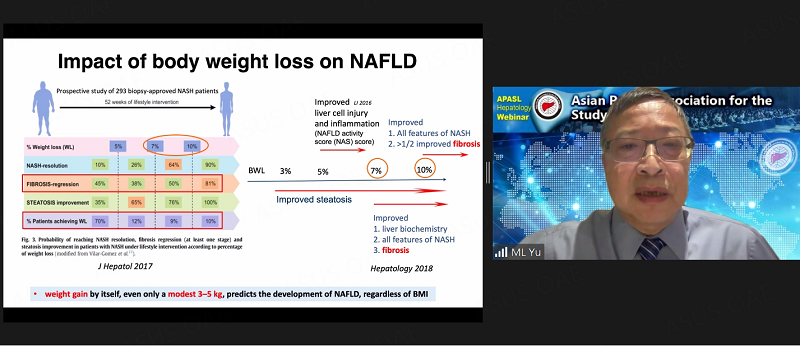
Topic: Treating Concomitant Disease to Mitigate NASH
Stephen A. Harrison, Chairman- Summit Clinical Research, Chairman-Pinnacle Clinical Research, San Antonio, TX, USA, analyzed the non-cirrhotic NASH potential drugs, cirrhotic NASH potential drugs, and potential targets for NASH treatments from his perspectives. In addition, Prof. Harrison outlined that the multifactorial metabolic milieu of NASH warrants potential therapies targeting many pathways.
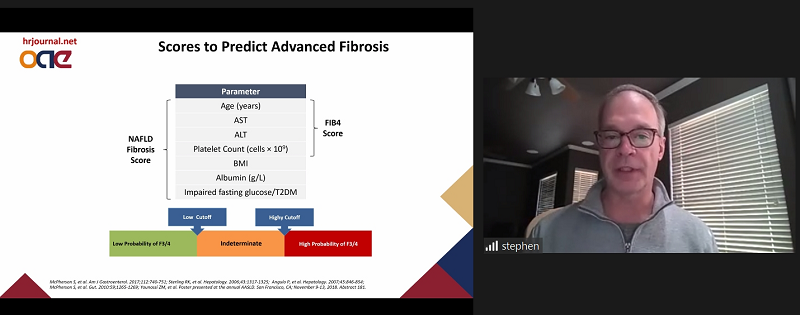
Topic: NASH-The Future Looks Bright
Dan Yock Young, Senior Consultant, Division of Gastroenterology & Hepatology, Department of Medicine, National University Hospital and National University of Singapore, Singapore, discussed that nonalcoholic fatty liver disease remains poorly understood, limiting proper phenotyping of patients in his presentation about “Phenotypes and Lean NASH”. He further illustrated that the ability to segment patient phenotypes to identify those at risk for early intensive intervention will pave the way for more cost-effective strategies to mitigate this disease.
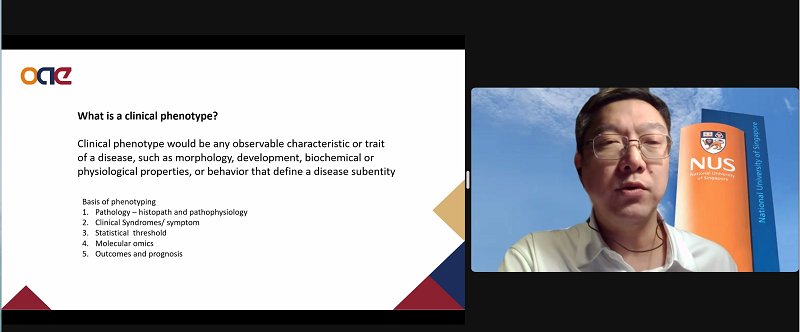
Topic: Phenotype and Lean NASH
Dean Tai, Co-founder and Chief Scientific Officer of HistoIndex in Singapore, shared interesting findings regarding the role of artificial intelligence (AI) and machine learning (ML) in therapeutic strategies for NASH on the webinar. AI and ML can access what people know about fibrosis changes and investigate what people do not already know. The data is essential for understanding the mechanism of action (MOA) of the drug and for designing later phase trials.
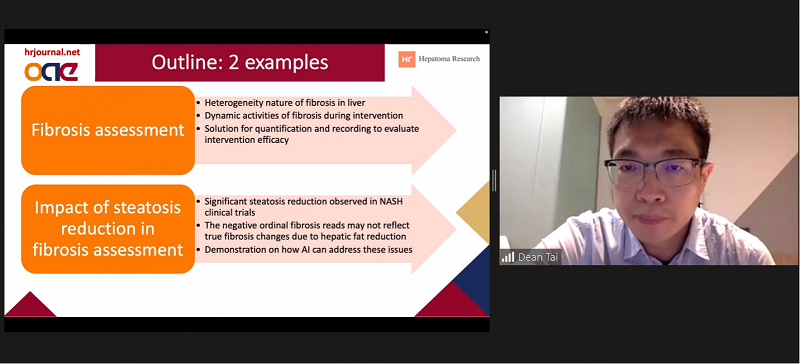
Topic: Role of Artificial Intelligence and Machine Learning in Therapeutic Strategy of NASH
Takumi Kawaguchi, Professor and Chairman, Division of Gastroenterology, Department of Medicine, Kurume University School of Medicine, Kurume, Fukuoka, Japan, gave an informative presentation centered on “Therapeutic Strategy for NASH with a Focus on Exercise Therapy”. Prof. Kawaguchi concluded that either aerobic or resistance exercise is beneficial and exercise regulates expressions of myokines. Even low-intensity exercise may alter myokines, which could contribute to the improvement of steatosis and hepatic fibrosis, as well as the suppression of hepatocellular carcinoma (HCC).
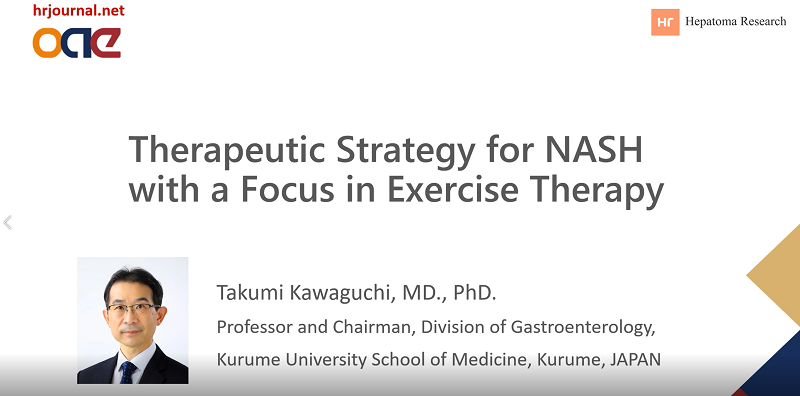
Topic: Therapeutic Strategy for NASH with a Focus in Exercise Therapy
In the discussion section, the Chair and Speakers had in-depth discussions on issues of interest to them.
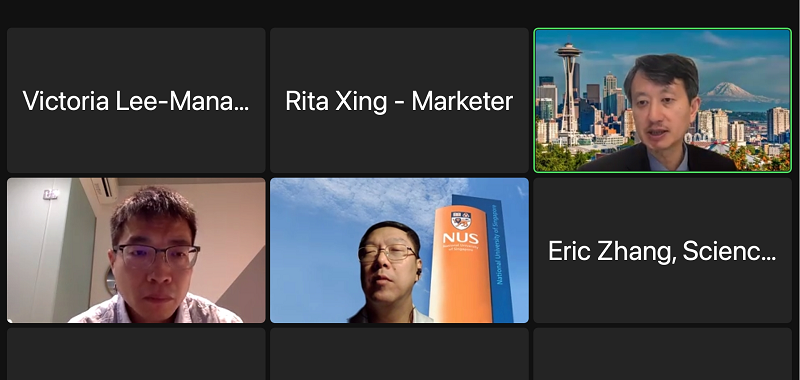
On behalf of the Editorial Board of the journal, we extended our sincere appreciation to the webinar Chair and Speakers for the remarkable presentations! For more wonderful webinars, please visit: https://oaepublish.com/hr/webinars
Currently, the webinar issue "Current treatment strategies for nonalcoholic fatty liver disease" is calling for high-quality submissions. Welcome researchers in this field to submit articles: https://www.oaecenter.com/login?JournalId=hr
Respectfully Submitted by the Editorial Office
Hepatoma Research




